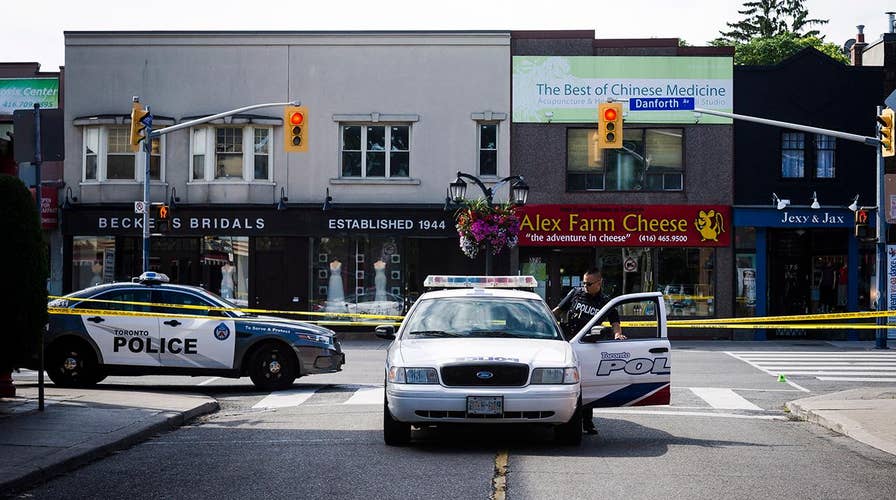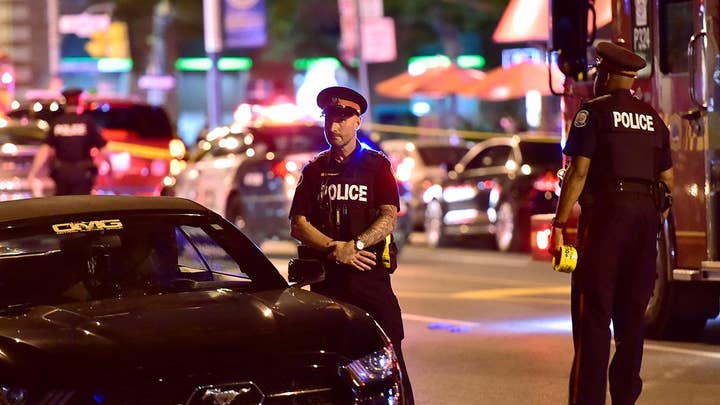Police still searching for motive in Toronto mass shooting
Investigators examining the past of the 29-year-old man who opened fire on restaurants; Bryan Llenas reports from a growing memorial for the victims.
The suspected gunman in Sunday's Toronto mass shooting had been taken into police custody twice due to concerns about his mental health, Canada's Global News reported Tuesday.
Investigators believe Faisal Hussain, 29, killed two people and injured 13 others in the popular Greektown neighborhood of Canada's largest city. Hussain's family has said that he suffered from "severe mental health challenges" and struggled "with psychosis and depression his entire life."
The Global News report did not specify when Toronto police had encountered Hussain, but said he had a history of mental health concerns dating back to 2010. The report also did not say what happened after police apprehended Hussain.
A police source also told Global News that Hussain believed he was the Joker character from the "Batman" movies. The source added that Hussain "was fascinated with death and explosions. He also liked replica handguns."
A family spokesman confirmed to Global News that Hussain owned a replica BB gun, but denied he had any special obsession with the Batman movies or any particular character.
On Tuesday, Canada's Public Safety Minister Ralph Goodale said Toronto police investigators had found "no connection between [Hussain] and national security."
When questioned by Fox News, the Royal Candadian Mounted police declined to say whether Hussain was on any kind of watch list.
Multiple news outlets reported Tuesday that Hussain lived with his parents in the Thorncliffe Park neighborhood of Toronto, not far from Greektown. The Canadian drug store chain Shoppers Drug Mart told CBC News that Hussain worked part time at one of their locations.
Neighbors told Reuters that the Hussain family was originally from Pakistan and had lived in the neighborhood for more than 25 years. CBC reported that Hussain's sister had died in an accident "several years ago," while his brother has been in a coma for more than a year following a separate accident.
Aamir Sukhera, who ran a public speaking course that Hussain enrolled in, told CBC that the suspect told him in 2010 that he was getting professional help for psychosis and depression.
"I feel bad right now because I wish I had the ability to identify what triggered this sort of behavior, but I don't," Sukhera said. "I can't say why he did it or not. I wish he had talked to me about something like this. But do people talk to someone before they do something like that? I don't know."
Fox News' Marta Dhanis and the Associated Press contributed to this report.


